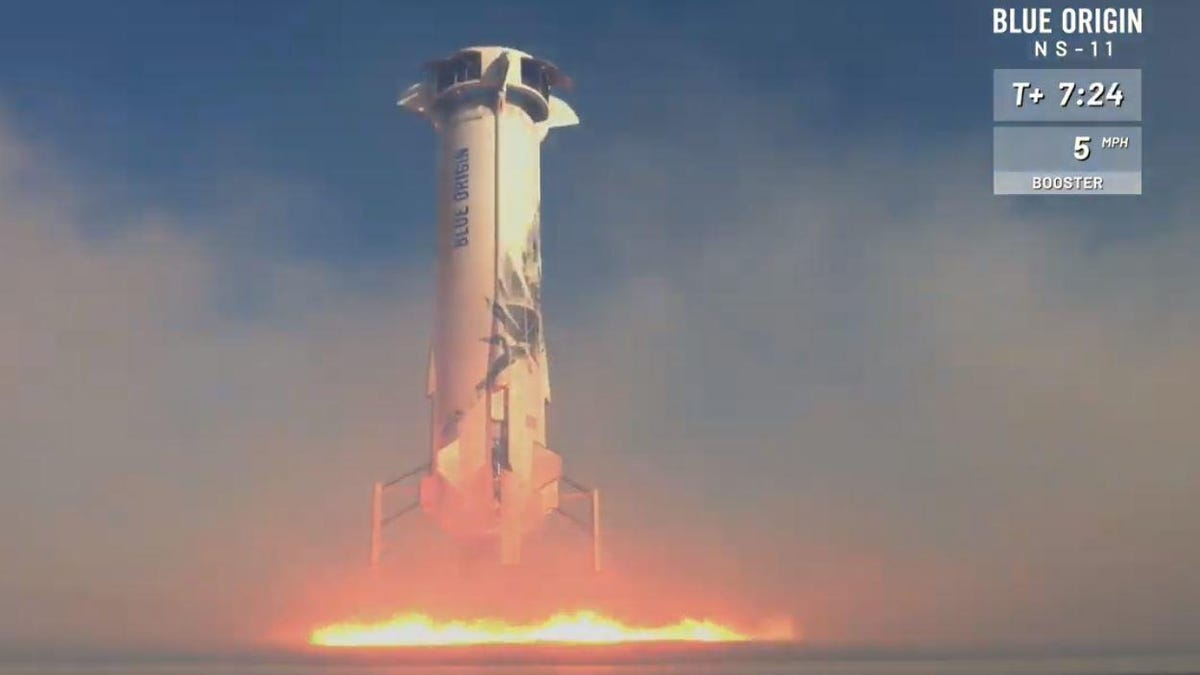Jeff Bezos' Blue Origin lands rocket again ahead of first crewed mission
The world's richest man and his rocket company sent a whole bunch of stuff on a quick trip to space Thursday and brought it all back down.

A Blue Origin New Shepard rocket lands in Texas on Thursday.
A Blue Origin New Shepard rocket made its fifth trip to space and back from west Texas on Thursday morning.
The reusable spacecraft carried a whole mess of microgravity science experiments to the edge of space just after 6:32 a.m. PT before the (unoccupied) crew capsule and rocket booster separated from each other. Both then landed back at the company's launch facility in the desert.
The webcast leading up to the launch also served as an extended advertisement for the seats on future New Shepard flights that Blue Origin, the commercial space company owned by Amazon founder Jeff Bezos , will be selling to tourists. Ariane Cornell, who handles sales for the company, noted repeatedly that the company plans to start sending humans to space by the end of this year.
For this mission, dubbed NS-11, Blue Origin sent 38 payloads over 62 miles (100 km) straight up and past the Karman line, which is widely considered to be where Earth's atmosphere ends and space begins.
The packages on board included a number of scientific experiments, such as a demonstration of a new medical technology to treat a collapsed lung in zero gravity and an experiment to test temperature fluctuations in microgravity designed by Alabama high school students.
MIT also had several payloads on board that are both scientific and artistic. Two projects planned to use zero gravity as a medium for creating art.
"Telepresent Drawings in Space uses graphite to create a drawing that could only have been made in space," reads a statement from Blue Origin. "Living Distance: A Spider-Inspired Robotic Dance in Weightlessness demonstrates a crystalline robotic device that navigates zero gravity, similar to a performance."
May is shaping up to be a big month for Blue Origin, after taking off more than three months since its last launch. The company is also hosting a rather mysterious event on May 9 in Washington, DC at which it says it will share an update on the company's progress and larger vision.
Originally published May 1 at 5:55 p.m. PT.
Updated May 2 at 7:28 a.m. PT: Notes that the Blue Origin mission has been completed.

